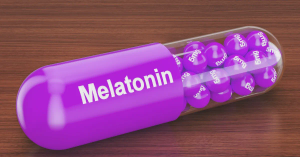According to the American Academy of Pediatrics, running is a crucial milestone in toddler development. Children typically start running at different ages according to their individual physical development but it is usually achieved between 18-24 months. Running builds upon previous motor skills, refining balance, coordination, and overall physical fitness. As a parent, you play a vital role in fostering this milestone. Here are activities which can encourage running and help your child in successful development of this skill.
Why Running is Important
Running might appear as an activity which is included just for playing. Regardless, this is just a myth as running is a very important motor skill which is helpful as:
1. It enhances balance and coordination
2. It helps to develops other gross motor skills
3. It helps to boost cardiovascular fitness
4. It can help foster cognitive development
Activities for Encouraging Running
These activities are important to ensure that your toddler is at par with their motor development before they can start running. You should ensure that your child has skills such as standing and walking without support before encouraging them to run.
- Walking Support: You can hold your toddler's hands to provide balance and support while helping them walk. This support should also be lent while learning to run
- Follow-the-Leader: You should walk or run ahead while encouraging your toddler to follow your lead.
- Obstacle Course: You can set up a simple obstacle course using cushions, chairs, or cones and make a game out of crossing it with your toddler. You can start by walking and progress to running.
- Music and Movement: You should play upbeat music which your toddler enjoys to encourage movement.
- Chase Games: You can engage in gentle chase games with your child.
Additional Tips
1. Supervise: Always supervise your toddler during these activities.
2. Start Slow: Gradually increase activity duration and difficulty.
3. Safety: Ensure a safe environment, free from hazards.
4. Encouragement: Praise and encourage your toddler.
Running Stages
1. Tentative Running (12-13 months): Toddlers take tentative steps.
2. Confident Running (13-14 months): Toddlers run with increased confidence.
3. Refined Running (14-18 months): Toddlers refine running technique.
Concerns About Running
If your toddler:
1. Shows no interest in running by 14 months
2. Has difficulty balancing
3. Displays unusual running patterns
Consult your pediatrician
Safety Precautions
1. Soft landing surfaces (e.g., mats, grass)
2. Remove hazards (e.g., sharp objects, hot surfaces)
3. Secure furniture and appliances
Conclusion
Running is a significant milestone in toddler development. By incorporating these CDC-recommended activities into your daily routine, you'll encourage your child to develop essential physical and cognitive skills. Remember to stay patient, supportive, and engaged throughout this exciting journey.
By following these guidelines and activities, you'll help your toddler achieve this critical milestone, setting them up for a lifetime of physical and cognitive success.
Resources
- Centers for Disease Control and Prevention (CDC)
- American Academy of Pediatrics (AAP)
- World Health Organization (WHO)
- Your pediatrician or healthcare provider








